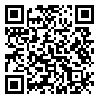Volume 28, Issue 4 (1-2023)
Back to this Issue |
Back to browse issues page
Download citation:
BibTeX | RIS | EndNote | Medlars | ProCite | Reference Manager | RefWorks
Send citation to:



BibTeX | RIS | EndNote | Medlars | ProCite | Reference Manager | RefWorks
Send citation to:
Abozari M, Maleki A, Mazloomzadeh S, Ebrahimi L. The effect of couples counseling on perceived stress and the improvement of breastfeeding self-efficacy in women with an unwanted pregnancy: A randomized controlled trial study. Journal of Hayat 2023; 28 (4) :419-433
URL: http://hayat.tums.ac.ir/article-1-4740-en.html
URL: http://hayat.tums.ac.ir/article-1-4740-en.html
1- Dept. of Midwifery, School of Nursing and Midwifery, Zanjan University of Medical Sciences, Zanjan, Iran
2- Social Determinants of Health Research Center, Zanjan University of Medical Sciences, Zanjan, Iran ,malekia@zums.ac.ir
3- Rajaie Cardiovascular Medical and Research Center, Iran University of Medical Sciences, Tehran, Iran
4- Dept. of Psychology, School of Humanities, University of Zanjan, Zanjan, Iran
2- Social Determinants of Health Research Center, Zanjan University of Medical Sciences, Zanjan, Iran ,
3- Rajaie Cardiovascular Medical and Research Center, Iran University of Medical Sciences, Tehran, Iran
4- Dept. of Psychology, School of Humanities, University of Zanjan, Zanjan, Iran
Abstract: (1566 Views)
Background & Aim: The average growth indicators in babies from unwanted pregnancy are lower than other babies. Perceived stress in these mothers can have a double effect on the reduction of milk. Considering the importance of breastfeeding in the health of mother and child, the present study aimed to determine the effect of couples counseling on perceived stress and the improvement of breastfeeding self-efficacy in women with an unwanted pregnancy.
Methods & Materials: In this randomized controlled trial study, 60 women with an unwanted pregnancy referred to comprehensive health centers of Khodabandeh city in 2021 were selected using the convenience sampling method and randomly allocated into two intervention and control groups in blocks of four. The control group received routine care, and the intervention group received six sessions of couples counseling based on spousal support twice a week. The data were collected using the Dennis Breastfeeding Self-efficacy Questionnaire, and the Cohen's Perceived Stress Questionnaire in three stages; before, immediately after the intervention and six weeks after delivery. The data were analyzed using the SPSS software version 16 by descriptive statistics, chi-square test, Fisher’s exact test, independent t-test and repeated measures ANOVA at a 95% confidence level.
Results: In the counseling group, the mean score of breastfeeding self-efficacy increased immediately after the intervention and six weeks after delivery compared to before the intervention, and decreased in the control group (P<0.001). In the counseling group, the mean score of perceived stress decreased immediately after the intervention and six weeks after delivery compared to before the intervention, and increased significantly in the control group (P<0.001).
Conclusion: Couples counseling based on spousal support was effective in improving breastfeeding self-efficacy and reducing perceived postpartum stress in women with an unwanted pregnancy. The presence of spouses in the breastfeeding counseling program appears to be a suitable measure that can be taken into consideration by planners in this field.
Clinical trial registry: IRCT20150731023423N18
Methods & Materials: In this randomized controlled trial study, 60 women with an unwanted pregnancy referred to comprehensive health centers of Khodabandeh city in 2021 were selected using the convenience sampling method and randomly allocated into two intervention and control groups in blocks of four. The control group received routine care, and the intervention group received six sessions of couples counseling based on spousal support twice a week. The data were collected using the Dennis Breastfeeding Self-efficacy Questionnaire, and the Cohen's Perceived Stress Questionnaire in three stages; before, immediately after the intervention and six weeks after delivery. The data were analyzed using the SPSS software version 16 by descriptive statistics, chi-square test, Fisher’s exact test, independent t-test and repeated measures ANOVA at a 95% confidence level.
Results: In the counseling group, the mean score of breastfeeding self-efficacy increased immediately after the intervention and six weeks after delivery compared to before the intervention, and decreased in the control group (P<0.001). In the counseling group, the mean score of perceived stress decreased immediately after the intervention and six weeks after delivery compared to before the intervention, and increased significantly in the control group (P<0.001).
Conclusion: Couples counseling based on spousal support was effective in improving breastfeeding self-efficacy and reducing perceived postpartum stress in women with an unwanted pregnancy. The presence of spouses in the breastfeeding counseling program appears to be a suitable measure that can be taken into consideration by planners in this field.
Clinical trial registry: IRCT20150731023423N18
Send email to the article author
| Rights and permissions | |
 |
This work is licensed under a Creative Commons Attribution-NonCommercial 4.0 International License. |







